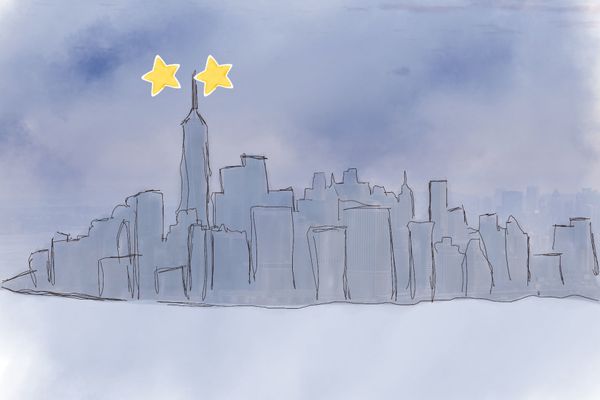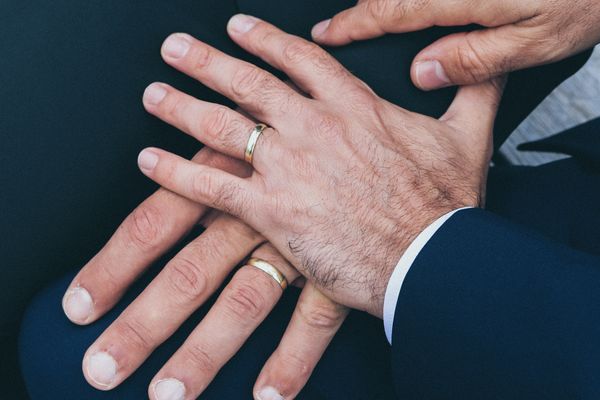In an era that is steadily being defined by normalized fascism, civil unrest, and fake news, having access to the correct information is more vital than ever. People are rushing to inform themselves for fear of becoming the next "canceled" celebrity, or "problematic" friend. Others are coming from a more modest position and have a genuine desire to become better. The latter are well-intentioned, and understand that it is their civic duty to stay informed in order for them to avoid reinforcing systemic oppression, and be the positive change they desire to see in the world.
Thankfully, we live in the age of the internet. Most questions can be answered by a quick Google search. There are literally thousands of books, articles, think pieces, and various other forms of media written by credible experts who successfully tackle a wide array of complex topics.
Unfortunately, not everyone has taken advantage of this innovation.
Many people, even the most well-intentioned of us, find it most convenient to confront the sources directly. Have a question about racism? Text your "Black friend." Don't understand homophobia? Just DM that gay guy whose Twitter rants always pop up on your newsfeed.
What's the harm in that?
The problem with this mindset is that it undermines the emotional labor and risk factors that come with confronting a minoritized identity about their experience. As a queer Black woman, I am keenly in tune with this fact. My experience has been one of tokenization. I've even made a habit of using the term "Blackipedia" to describe this phenomenon. Many of my friends have failed to understand my frustrations. When they ask me questions and I respond with the phrase "Google is free," I've been met with hostility and impatience. They insist that they're simply asking me to "teach them to become better" — as if I am a messiah whose sworn duty is to show them the light. It is in my hopes that this article cam illuminate just why this behavior can be harmful and should be corrected.
Invalidation
Having my experience invalidated is something I'm forced to undergo on almost a daily basis — and not just by strangers either. I've had both friends and family tell me that I didn't understand my own experience, or that I wasn't unjustly wronged, I was just being sensitive.
When I opened up to another Black person about my feelings about this behavior in the hopes of finding common ground, I was blindsided by his response: "If you are a strong Black woman, then that shouldn't matter. You're just being weak-minded."
What I longed to make him understand is that, no, I am neither "weak" or a "snowflake," I'm fed up. It is completely valid to be flooded with anger and hurt when I am forced to withstand constant emotional manipulation by people who will never know the pain that comes with being born into a world that was not made for people like me.
They'll never know what it's like to grow up and never see themselves in what the world has defined as beautiful: white. They'll never know the pressures that accompany constantly policing their own behavior, for fear of perpetuating an oppressive stereotype. They'll never know the alienation that comes with sitting in a classroom beside their fellow peers and hearing them debate whether or not they themself deserve the basic human right of marriage. They'll never see their pride burn to ash when they work twice as hard, only to be given half the credit because of what lies in between their legs. They'll never know what it's like to constantly question their own sanity because they've been told what they know to be true is a lie.
They'll never know.
Emotional labor
This constant invalidation can make it scary to open up about personal traumas that serve as evidence of my experiences. The fear of being told that a horrible event that completely altered my world view and behavior "wasn't that bad" — or worse, "was my fault" — is almost earth-shattering. What's equally as awful is that I shouldn't even have to describe how I was groped by a male "friend" who thought I was unconscious, in order to illustrate my point that women's distrust of men is completely justified. Or recount the numerous microaggressions I've received due to my hair in order to convince a white girl why it's problematic for her to get locs.
However, that is exactly what I, and many other minoritized identities, are repeatedly forced to endure in order to convince others that what we say is fact. Not only is it unnecessary, but it's exhausting. What's worse is when my vulnerability is still not enough. When whoever I'm conversing with berates me to supply statistics off the top of my head in order to prove my point, as if my entire experience on earth is not proof enough of my struggles.
The immense amount of pressure that comes with speaking on behalf of an entire demographic is daunting as well. Suddenly, it's as if I have become the spokesperson for whichever one of my identities I am burdened with defending in that given moment. If I slip up or show an ounce of emotion, my case becomes undermined and I lose all credibility — and so does my community.
Prior to the 2016 election, I would often have my emotional labor exploited for the sake of educating others without so much as a "thank you" for my time and energy. This summer, when the Black Lives Matter protests began to pick up again, things only got worse. Left and right, I had people asking me what my opinion was on this, and if I could explain that. What many people fail to understand is that it is not my duty to educate anyone. I have every right to refuse those who seek me out. It is only out of the kindness of my heart that I take the time out of my day to educate others.
With the constant backlash that I face every time I try to explain my perspective, the times I have the courage to open up are growing far and few between. Social conditions for myself and my people only seem to be worsening, and nothing I say seems to make much of a difference anymore.
Accountability
I've had an influx of my friends assure me that they would love nothing more than for me to "hold them accountable" for anything they unknowingly do that I consider to be "problematic." This is easier said than done. In my experience, whether it be on Twitter or real life, I am often accused of "canceling" someone, when in reality, I am pointing out either an instance or a pattern of problematic behavior out of the hopes that by doing so, they can correct said behavior and become better.
Before I delve into this issue any further, it is important that I highlight the difference between "call-out culture" and "cancel culture."
There is a swarm of misinformation surrounding the difference between call-out culture and cancel culture. "Calling someone out" is a phrase that describes the instance of holding a person accountable for their actions. This is followed by gifting said person the opportunity to remedy their mistakes. The decision to not support a person who has refused to do so is completely justifiable.
On the other end of the spectrum is cancel culture. This term describes the act of accusing someone of doing something so morally incorrigible, that they are classified as irredeemable, evil, or beyond redemption. Therefore they should be "canceled," and have all of their work discredited and ignored by the rest of society.
This mindset is troubling for several reasons. It perpetuates the notion that people are beyond help. In this reality, someone can try to become better but it will never be enough. If we are to progress as a society, we must be able to forgive one another. However, that future can only be manifested when individuals take responsibility and learn from our mistakes.
Personally, I think the blur between call-out and cancel culture stems from ego. Most of the time when I call someone out for their problematic behavior, they see it as a personal attack on their character. Usually, their automatic response is, "I'm not a [word for a person who exhibits bias towards a certain group here]! What are you gonna do, cancel me?" or something else along those lines. I have come to interpret this as "I'm not a bad person. Stop accusing me of being something I am not."
What many of us don't understand is that we are all on a spectrum of bias. Just because you are not located on the extreme of that spectrum, doesn't mean you are completely without fault. For example, a person can believe that slavery is wrong, and still show racial bias, have racist tendencies, and or perpetuate systematic oppression. Microaggression can, and do, occur, even from the most "woke" among us.
This is why we must eliminate this notion altogether. There is no such thing as being "woke," or, in other words, "the perfect ally." The implications of this word ally being used as a noun implies status. This leads to some allies becoming too comfortable in this identity. They begin to consider themselves beyond fault — a dangerous mindset in any person in a position of power. Some even hold themselves higher than those they say they are defending, claiming that their work to help a community means that they have earned the right to exist beyond criticism. Instead, allyship should be considered a verb, a continual practice that we should all do our best to improve upon.
This false notion of "wokeness" has contributed to many people automatically feeling personally attacked when they are told they have done something wrong. Their pride gets in the way, and they begin to take out their fears of inadequacy on the person who has been hurt in the situation. This soon morphs into gaslighting, a term attributed to manipulation techniques performed with the purpose of convincing others that their reality is false. "You're being dramatic," they often say. "It's not as bad as you're making it out to be." "Get over it." "Stop complaining so much." "I haven't seen XYZ happen."
When I hear these things, I hear, "You don't have the right to feel this way. Your experience is invalid."
What I need all hopeful allies to understand, is that no one is entitled to a minority's time and energy. We live in a time of high-speed internet and free libraries. Infinite resources are at our disposal. Google is free! It is our individual responsibility as human beings to take the time to educate ourselves. The more knowledge we gain, the more people we can help — ourselves included.





















